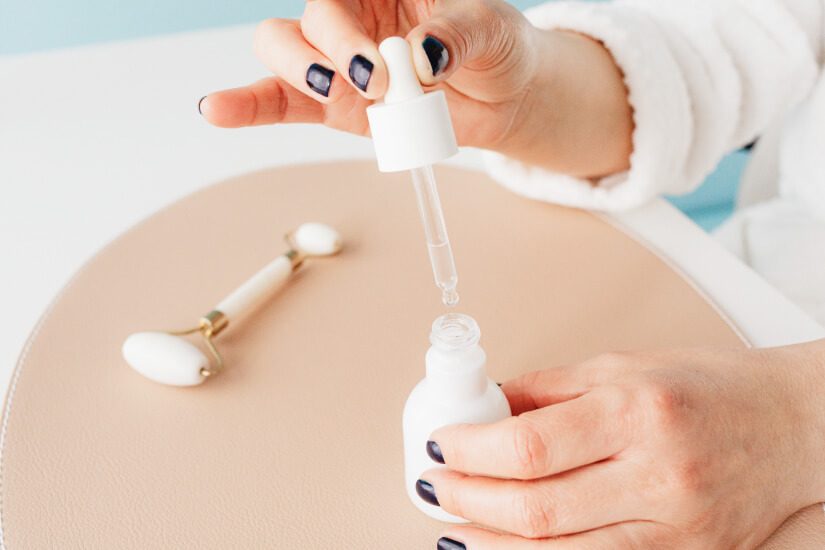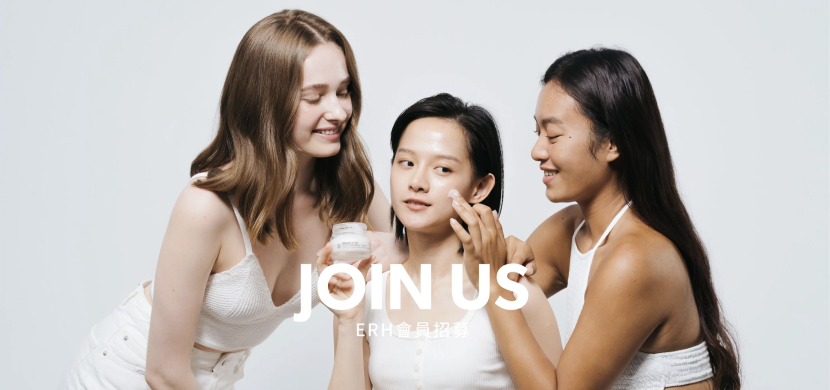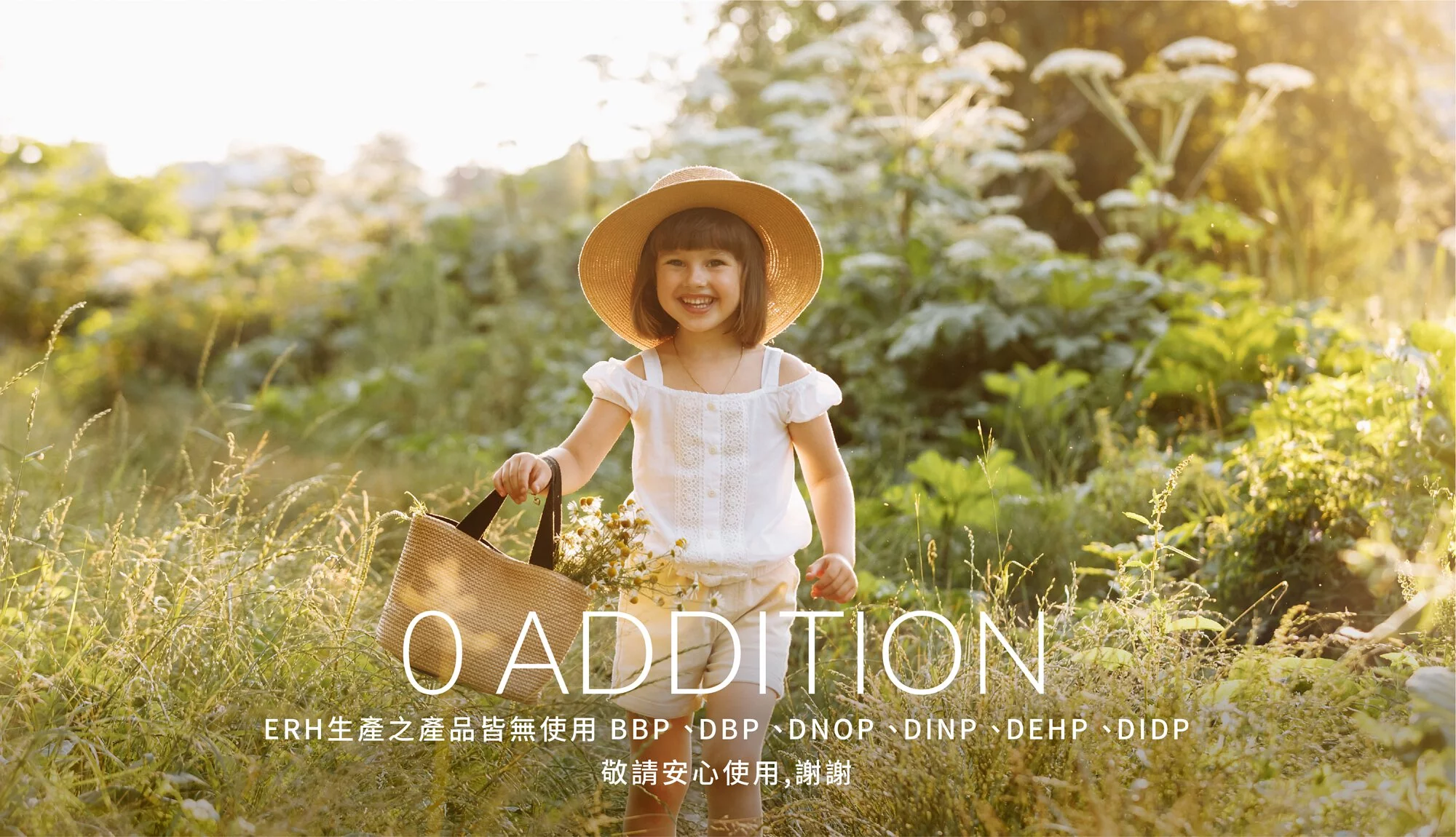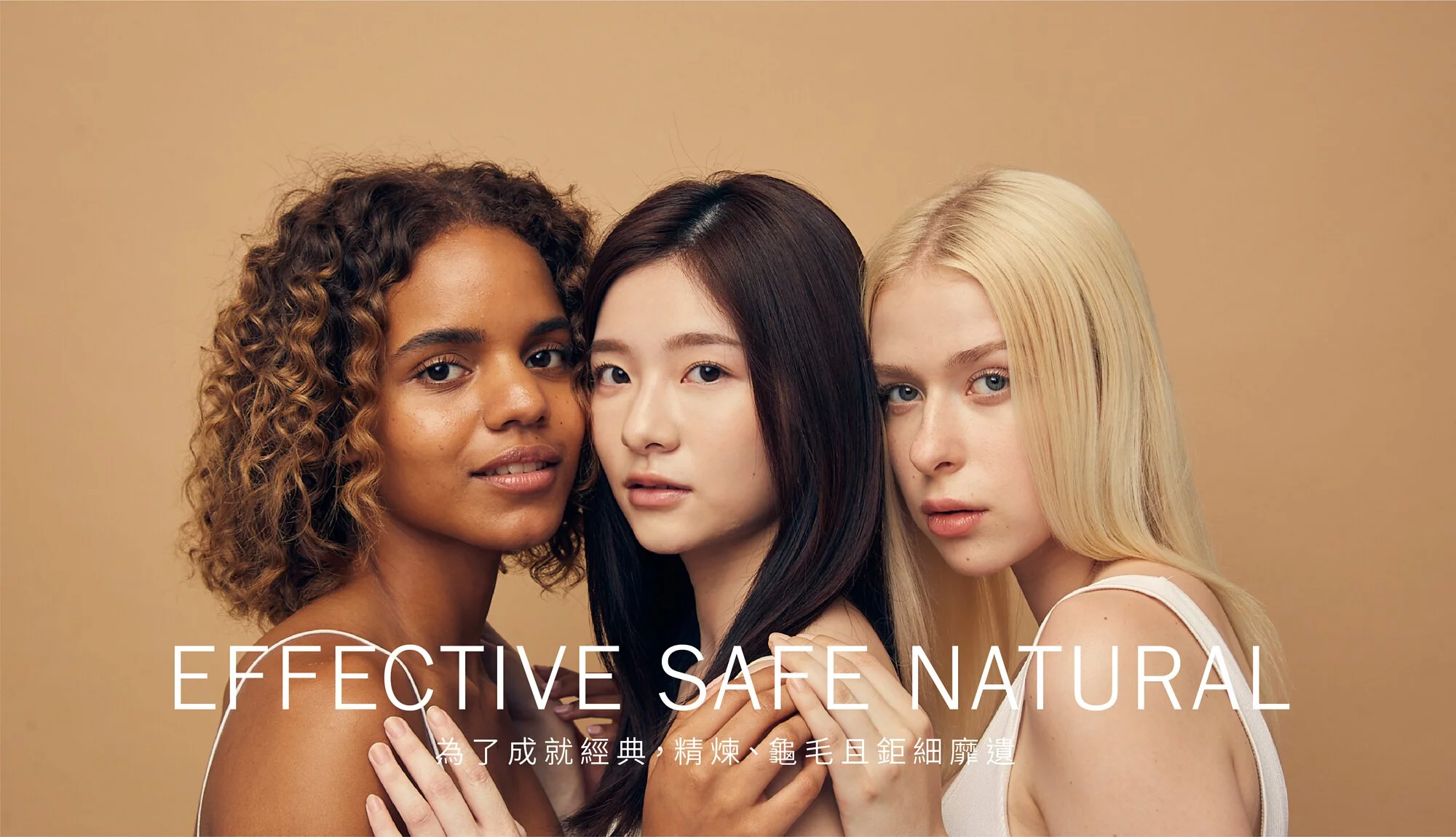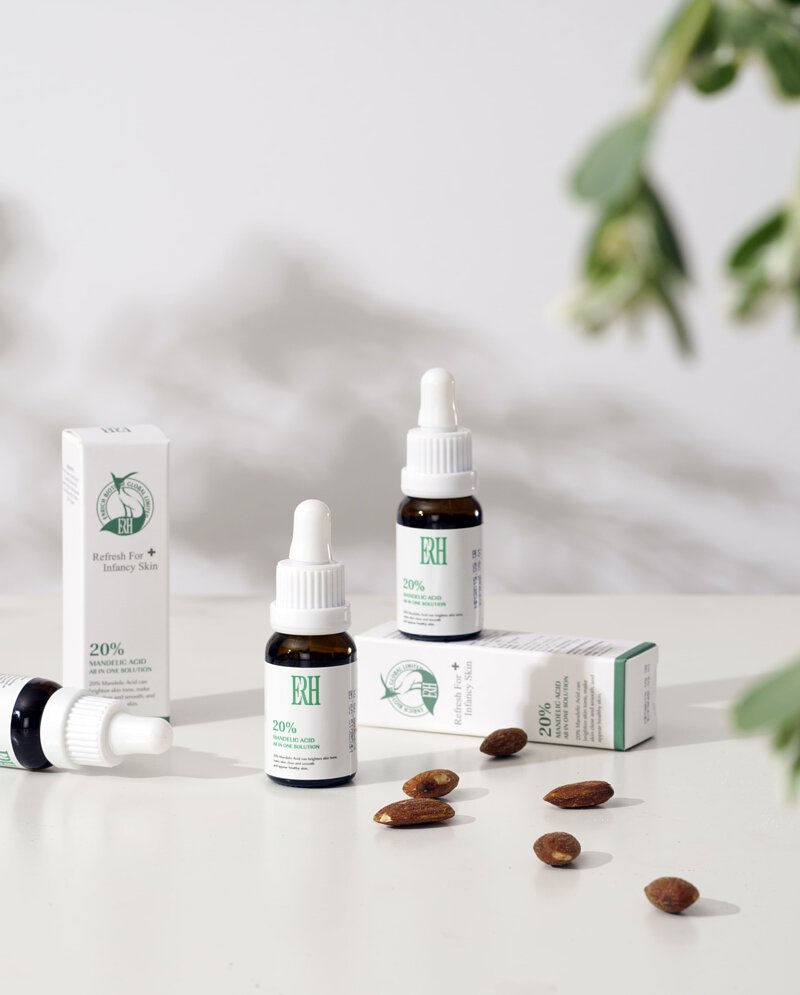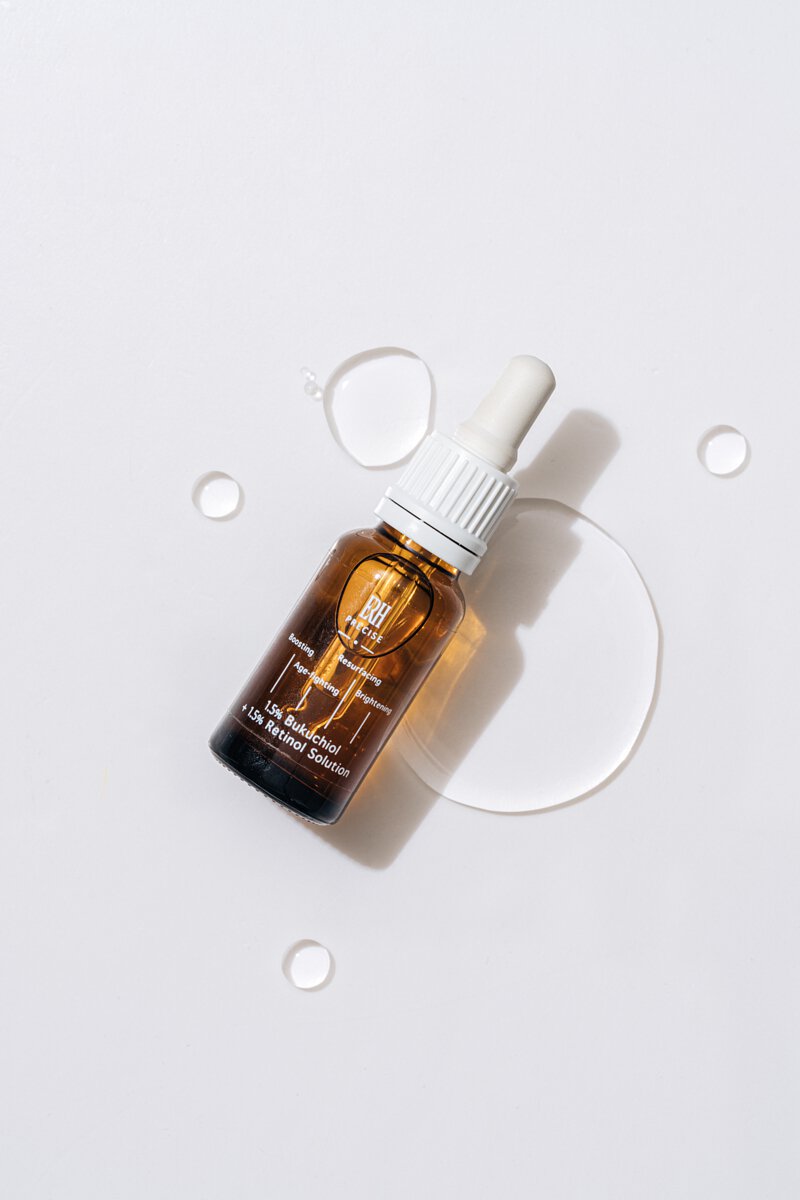What are the benefits of Retinol?
Perhaps some of you are less informed of Retinol, though many may ring a bell, Retinol on skin can achieve anti-inflammatory, inhibit sebum secretion, help in keratinocytes metabolism, promote collagen production and other positive effects, is a frequent prescription of dermatologist!
Retinol (Retinol / Retinoids) is like Retinoic Acid, is a vitamin A derivative, has similar effectiveness as Retinoic Acid, it can penetrate into deep skin layers, and transformed into Retinoic Acid, to get rid of dead skin cells, in order to exert anti-wrinkles, smoothen fine lines, delay aging skin, tighten pores, and other effects, prior to using Retinoic Acid, one needs a dermatologist examination and prescription, Retinol has lesser irritation than Retinoic Acid, can be safely used in home skincare, and is very well received by Beauty industry, inseparable from Anti-aging & acne skincare.
What types of Retinol products deserve our attention? ERH New Factor & Plant base Double A Retinol Solution (1.5% Bukuchiol + 1.5% Retinol Solution); ERH Youthful Lab gone through 546 experimental tests, to develop 2022 New Factor & Plant base Double A Retinol Solution, [PRO Encapsulation Technique new Retinol] + [Plant base Retinol (Bakuchiol)] blended together to strike disturbing skin problems, liken to wearing a protective filter after use, showing off your charming self!
Use Retinol Correctly
- Recommended orders: clean your skin, apply make-up, then use appropriate amount of Retinol on face, neck or localized skin texture. (Avoid touching eyes, lips, sensitive skin, advice to apply lesser amount but more frequently, good to do skin patch sensitivity test).
- Recommended frequency: gradually increase Retinol application, recommend to apply once every 3 days initially, after skin responded well, then gradual increase to one application every night.
Retinol skincare Q&A
Who should use Retinol anti-aging product?
Despite many anti-aging benefits of Retinol (whitening, anti-aging, improve enlarged pores, etc), skin irritation is relatively lower than Retinoic Acid, after penetrated into skin layers, Retinol gets converted to Retinoic Acid, so is not the higher concentration the better, because it corresponds to side effect, during initial use of Retinol, there will be skin cell metabolic changes, like flaking skin, dry & tight skin, acne, pimple, and others that related to skin cell rejuvenation, we need to assess individual skin tolerance to decide Retinol longer term use.
Many do concern about Retinol safety in pregnancy? The general advice is not to use, because Retinol is a form of Vitamin A derivatives, it may have harmful effect on the growing fetus.
Retinol should not be used together with?
As mentioned earlier, it is not that higher concentration of Retinol is better, of course it also does not mean that layer up products can give you effects of 1 + 1 = 2, or >2! The following ingredients pairing may worsen skin conditions!
- Retinol + Vitamin C: Retinol (Retinoids) and Vitamin C belong to highly active ingredients, when they are paired together, are easily cause greater skin irritation.
- Retinol + Salicylic Acid or fruit acids: Retinol can stimulate skin cell cycle to shed off dead skin cells, injured cells, when used together with Salicylic Acid or fruit acids, it can cause dry skin, irritation, damage skin moisture balance, further aggravate skin sensitivity to sunlight exposure, hence easily damage the skin, some opinions recommend to pair with sunscreen cream during day use, if there is necessity to use these two ingredients, then is recommended to use it on alternate day or week.
- Retinol + Retinol: Cannot emphasize more! Suitability is the best approach, is not simply layer up! Especially crucial with regards to soft delicate skin, like skin around the eyes which can be easily irritated, there are many who after applying whole facial Retinol product, then continue to apply eyes cream with Retinol ingredient to strengthen, unknowingly a form of injury to the skin.
What to do with Retinol peeling skin?
Peeling skin is a common side effect of Retinol, this side effect usually resolves gradually within a week, remember not to scratch, pull, pick, or rub the peeling skin areas, for these actions can injure the sensitive skin, is good to just strengthen skin moisture and patience with the natural skin shedding process, and also avoid any irritation to this area, even applying or removing makeup is a form of irritation oh!
What to do with Retinol acne breakout?
Retinol increases skin metabolic cycle, after Retinol penetrated into skin layers, it can induce rejuvenation to the hidden acnes and keratinocytes underneath the skin (hair follicles & keratinocytes metabolic changes), activate inflammation reaction underneath the skin, and causes eruption of pimple, acne to appear, this is one common side effect after Retinol usage, is also known as “Retinol acne breakout”!
Retinol acne breakout do not happen once only, but a gradual metabolic process. This acne breakout can last for a month, or up to three months or longer.
To summarize, Retinol is of great help to many disturbing skin problems, whether it is targeted against the early aging phase of fine lines, or upgrade your young beautiful translucent skin, can have excellent effect, even to resist damaging effect of UV light exposure, wish to restore your beautiful skin lustre – let Retinol be your good teammate!
Recommend:
What is Retinol? Complete understanding of Retinol effectiveness, according to Dermatologist recommended anti-aging ingredient
1.5% Bakuchiol + 1.5% Retinol Solution
20% Mandelic Acid: The All-in-One Skincare Solution You’ve Been Looking For!
What is Retinol? Is Retinol good? What is all the hype about retinol for skin?

